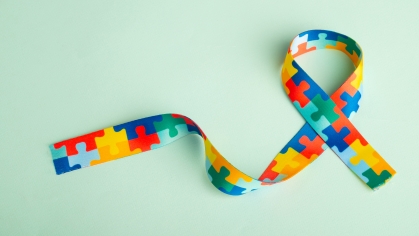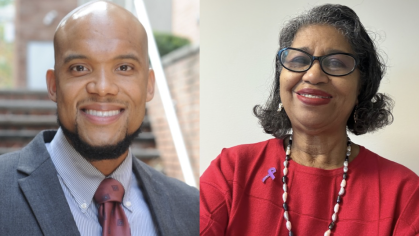We recently had the opportunity to speak with Assistant Professor of Professional Practice Marla Blunt-Carter about Juneteenth, which is observed on June 19 each year.
Juneteenth is the oldest national commemoration of the emancipation of the last enslaved African Americans in the United States. In addition to June 19th being named Juneteenth, it is also known as Emancipation Day, Liberation Day, Freedom Day, and Jubilee Day. It is a day to acknowledge the atrocity of slavery in this country, learn from this dark period, and showcase the strength, resilience, and fortitude of the enslaved African Americans and their descendants.
Just this week, Congress passed a bill to make Juneteenth a federal holiday. To learn more about Juneteenth, visit the National Museum of African American History & Culture’s website.
Why should social workers, in particular, know the history of Juneteenth?
One of the National Association of Social Workers (NASW)’s core values is promoting the dignity and worth of every person. This is a key component to social work practice – that we treat everyone with dignity and respect. Our profession was founded to help marginalized and vulnerable communities and advocate for social change, with an ultimate goal of creating a more just society. In order for social workers to fulfill our professional mission, we must understand the histories of others, gain an appreciation for all cultures, and design culturally appropriate approaches to build trust and establish authentic connections.
It is necessary to know the history of Juneteenth but also to go even deeper and learn about the global slave trade and the residual effects of this immoral practice. In order to develop trusting relationships with individuals, families, and communities comprised of descendants of enslaved people of the African diaspora, practitioners need to demonstrate an awareness of the past oppressive treatment and the present-day circumstances that stem from one of the most horrific acts of mankind. These effects are still evident in the structural inequality present in our society today, and historical knowledge informs the ways we deliver services, design interventions, and formulate policies. It has a profound impact on our ability to build trust with the African American community.
Do you think Juneteenth should be recognized as a national holiday?
Yes, Juneteenth should be recognized as a national holiday. It is an opportunity for everyone to learn the untold historical accounts of African Americans in the United States. It will increase awareness of communities that are not familiar with this holiday, add to the historical narrative, and give a more complete account on who we are as a nation. As American citizens, every year we celebrate our independence from England. The Fourth of July is a day that allows us to recall our fight to achieve freedom from tyranny and oppression. However, that day does not mark freedom for enslaved people in the United States. American history books also depict an insufficient portrayal of the complexity of the ending of slavery. Recognizing Juneteenth as a national holiday will help give context to the complexity of and begin dialogue related to our nation’s founding.
Are there any lessons to be learned from Juneteenth?
The renowned Nigerian novelist, poet, and critic Chinua Achebe wrote, “Until the lions have their own historian, the history of the hunt will always glorify the hunter.” The history of slavery has been wrongly portrayed for centuries and that mischaracterization has led to further oppression of Black and Brown people in America and around the world. The lesson gained by recognizing Juneteenth is that we need the know and respect history from the lens of all people. Many histories of nondominant cultures are not known or taught in schools. It is necessary that we explore and learn from the past, inclusive of multiple perspectives, and find ways to integrate it into our educational systems. This approach helps us appreciate the richness and beauty of multiculturalism, and cross-cultural knowledge is the only way to challenge stereotyping, reject ethnocentrism, value others, and fight injustice.
What are some ways people can observe Juneteenth?
Juneteenth can be observed through education and action.
Knowledge related to Juneteenth is more readily available now than ever before and can be easily obtained by going online and simply searching for information about Juneteenth. To gain a curated academic understanding of the significance of this holiday, you can visit the Smithsonian National African American Museum History and Culture’s website or visit its online exhibitions, explore the digital initiatives and publications, and review its video archives. There are also documentaries, articles, and other writings penned by African American scholars that can enhance your knowledge. People can also learn more by researching their own family genealogy. Learning and respecting the history of others begins with learning your own story and how it mirrors or differs from the story of someone else’s journey.
The second way to observe Juneteenth is to act. When you know better, you do better. This idea from Dr. Maya Angelou best exemplifies how to move from learning to action. Once knowledge has been obtained, we must then do better! Better means raising awareness with your own circle of family and friends about Juneteenth and the history of this day, attending local events commemorating the emancipation of enslaved Africans and their descendants, participating in virtual events on digital platforms, contributing your time and resources to efforts that address racial, social, and economic injustice, and joining or supporting the work of organizations whose mission it is to eradicate systemic oppression.
How do you plan to spend this Juneteenth?
As the great-great granddaughter of enslaved African Americans, my own personal commemoration of Juneteenth involves spending time with family, learning about our genealogical roots and reflecting on the life experiences of our ancestors.
How does commemorating Juneteenth in 2021 look different than how it was commemorated in years past?
Social workers have always been on the frontlines fighting for equality. In 2020 we have experienced collective trauma: the COVID-19 pandemic, a global uprising for racial justice, and a presidential election that highlighted the division in our country. These events have helped garner an awareness of issues that have always existed and forced everyone to either address the problems or be a part of the problem. In particular, I also believe that three words have changed how Juneteenth will be commemorated this year, and those words are BLACK LIVES MATTER. The commemoration of Juneteenth demonstrates that they mattered in 1865 and they matter today.
This story was created in partnership with Rutgers School of Social Work's Inclusion, Intersectionality, Diversity, Equity, and Advancement (IIDEA) Committee in support of our commitment to diversity, equity, and inclusion.



